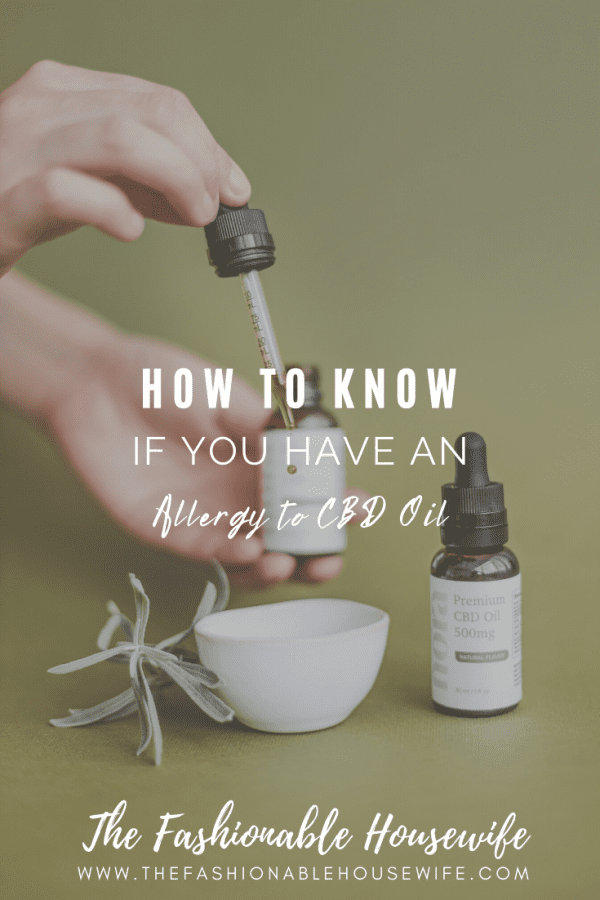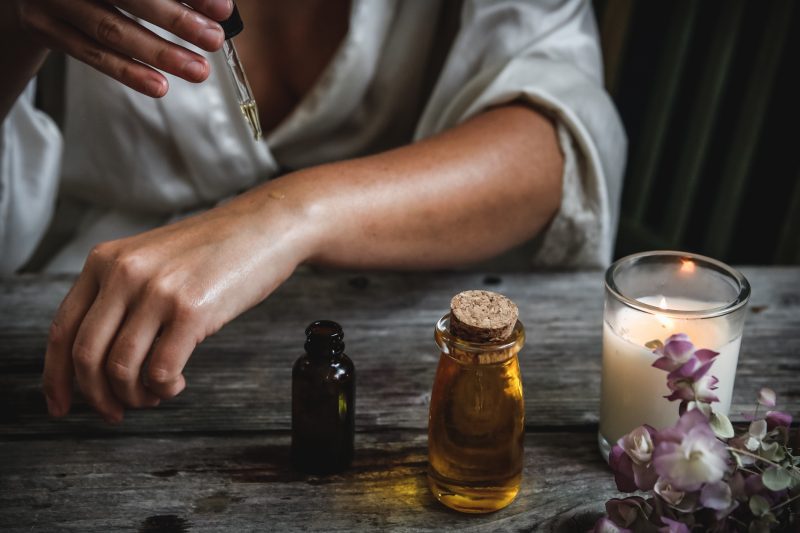
The CBD oil market has grown immensely worldwide. By 2027, the forecast stands at 38.4 percent (Compound Annual Growth Rate). The volume being US$27.9 million. CBD oil comes from the cannabis plant. It has become well-known for relief from anxiety. CBD oil also eases pain caused by arthritis. Researchers are studying the possibility of using this oil to treat stroke, Alzheimer’s, and Parkinson’s disease. CBD oil may have multiple benefits. However, users worry about possible allergic reactions to this oil.
Allergic Reactions
In the first place, CBD oil may contain aeroallergens like pollens and spores from marijuana plants. These allergens can produce allergic reactions that range from minor to life-threatening disorders. Research studies observed the correlation of asthma symptoms with cannabis plants’ pollination patterns.
Another probable cause of allergy to CBD oil is the cross reaction between cannabis and certain fruits or vegetables. Some call this the cannabis fruit-vegetable syndrome. It occurs when some proteins in a pollen substance have similar proteins in another element. CBD also has histamine compounds for immune responses that may cause allergies. Such reactions include difficulty in breathing and itchy nose. Stop using the oil upon experiencing any adverse effect.
Common Symptoms of CBD Allergy

What are the symptoms of an allergy to CBD oil? In certain instances, the symptoms are hardly noticeable. However, there are allergy symptoms to watch out for.
- Dry, uncomfortable and itchy eyes
- Red patches or spots on the skin
- Continuous coughing
- Inflammation of the lungs
- Fatigue or Nausea
- Diarrhea
Remember that CBD oil may not be good for individuals with health conditions or taking medications. The oil interacts with prescription medicines. Avoid consuming CBD. Or, consult the doctor before taking this oil. Extended use can also aggravate allergies.
Incidentally, recent studies on smokable CBD flowers revealed this practice creates a feeling of tranquility throughout the body. This can be compared to drinking several glasses of wine. A sense of relief affects the smoker. The same research stated that CBD flowers can allegedly reduce symptoms related to arthritis, anxiety, and multiple sclerosis.
Compared to smoking tobacco, it can be a better option. Besides, tobacco-smoking has several health risks. According to the Centers for Disease Control and Prevention (CDC), it can lead to the following disorders:
- Cancers
- Heart Ailments
- Lung Diseases
- Stroke
- Diabetes
- Chronic Obstructive Pulmonary Disease
Dealing with CBD Allergies
For users of CBD oil with allergy issues, the initial step is to consult the healthcare practitioner. Inquire about possible medications and proper alternative treatments. Symptoms may be controlled using hand gloves, face masks, inhalers, and prescription medicines or ointments. However, there is no known treatment for mild allergies. Once these become severe, consult a doctor right away.
Actually, one should not worry about minor symptoms because these will likely disappear after a few days. Nevertheless, only a doctor can determine if CBD oil is not harmful to a person. Use of this substance are typically affected by these factors:
- Age, health condition and weight of the person
- Inherent health factors
- Heart or lung disease
- Recurring allergies
- Substance abuse or alcoholism
Basically, the CBD oil is safe except for those with serious medical disorders unless recommended by the physician.
Dry and Irritated Eyes

In most cases, dryness comes with redness. Check carefully if the CBD oil produces this condition. The reason could be a possible abnormality in the meibomian gland found at the back of the eyelashes. In fact, certain research disclosed that CBD topicals can even help in restoring the gland’s functions. Therefore, it is partly responsible for reducing dry eyes.
The End Result
All being said, there can still be benefits in taking CBD oils. Factors to consider are the continuing research that experts in this field conduct. Again, assess the benefits and risks carefully. Finally, check with the healthcare expert for professional advice.



